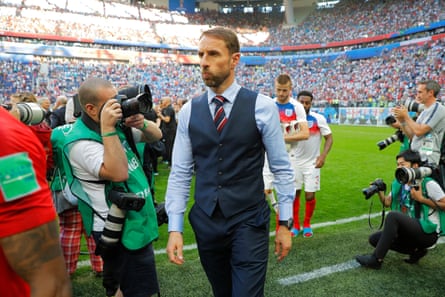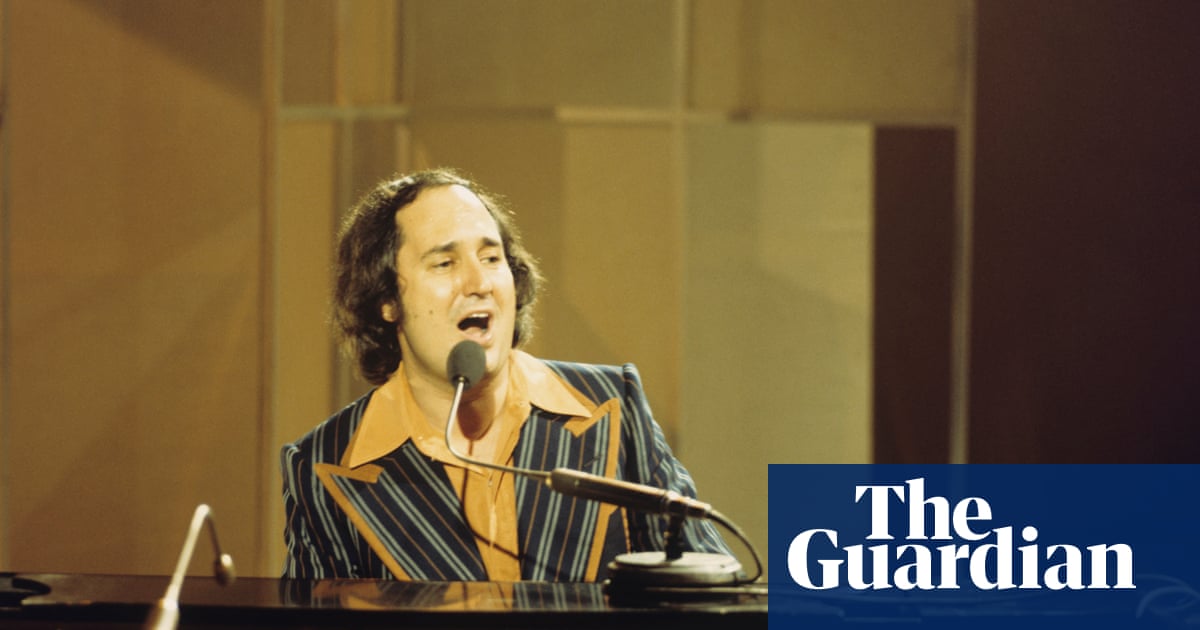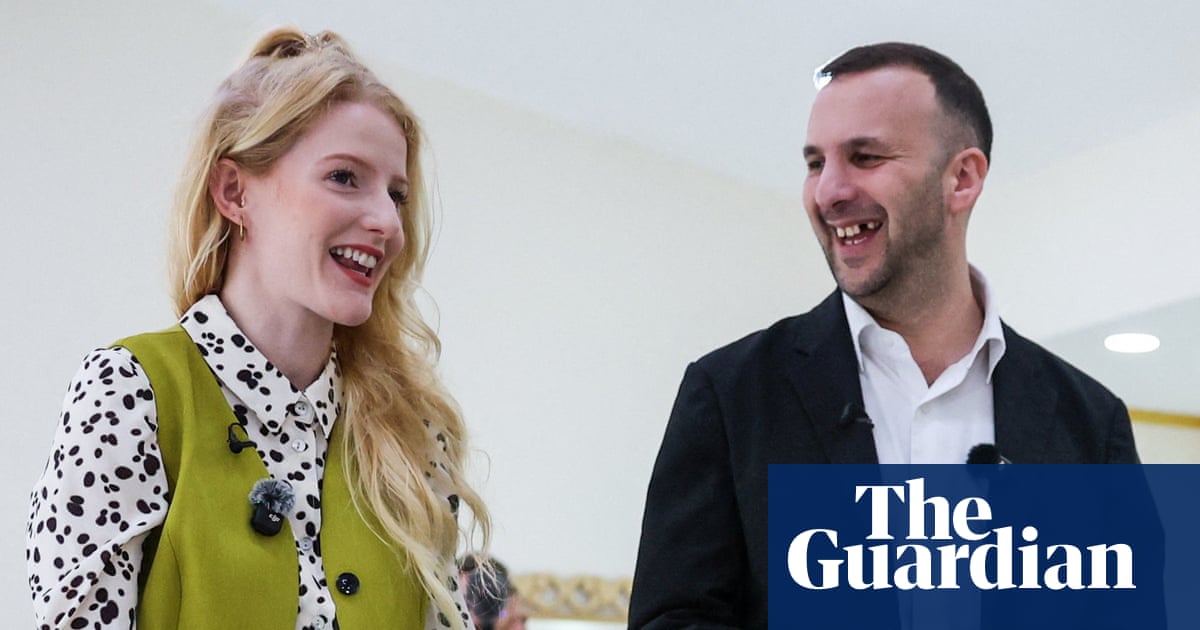Gareth Southgate has a good story about cockapoo vomit. Alone, exhausted and about to leave England’s impossible job, it was the first thing that greeted him on returning home from defeat in last year’s European Championship final. Obviously, he immediately set about clearing it up and consoling the pup suspected of overeating. Another moment of pathos in a life that has experienced the extremes of the public eye, another hurdle cleared.
Southgate is on a promotional tour but you wouldn’t guess at first glance. He has a book coming out this week and has only just started talking about it. After a swift round of interviews with the BBC on Monday morning, in the evening he moved to the Barbican in York; a perfectly commodious venue with decent acoustics, but not a customary place for launching a nationwide media blitz.
The former England manager, the man who has represented his country more than any other (add player and manager, you get there), does not perhaps need the publicity. You do not really get the sense that he wants it either. He is, clearly, a people person. Fifteen months away from the hothouse of the England job and Southgate is at his affable best, cracking jokes readily, perhaps too readily. But as he sits in the spotlight once more it feels like a means to an end.
This event, and his book, is about what Southgate believes. Or at least the processes he has adopted to try to put those beliefs into practice. It’s a story told through moments, from the experience of watching his grandfather – a Royal Marine – buffing his boots as a child, to becoming a professional and a Premier League captain by 23, then on to the missed penalty in 1996, a failed managerial stint at Middlesbrough and, finally, the deliberations with his son over whether to make a waistcoat part of his outfit at the Russia World Cup (there were other aspects of the England manager’s job that left their mark too).

Southgate has no shortage of material and much of it is compelling, entertaining in fact. But even on a night of conversation – here with the BBC’s Mark Clemmit – you feel that he is sharing these moments less to enrapture his audience than talk about the lessons he took from them. From his grandfather, he learned discipline early and has maintained it throughout his life. From his time on the touchline in Middlesbrough (“the worst and best decision I made in my life”) he learned the importance of having difficult conversations and doing so early. The penalty proved to himself that he was resilient then, later, that there was such a thing as “process” when trying to replicate complicated actions as an elite athlete. The waistcoat thing was mainly about whether it would cover up sweat patches in Russia, but did go on to acquire a broader significance too.
All of the lessons learned have value for a broader audience, but they are not much different from the value you might extract from listening to a Jake Humphrey podcast. What sets Southgate apart, is what he chose to do with the lessons he had learned. He makes the point several times, as he did during his time with the Three Lions, that he is a proud Englishman. He regarded his time as England manager as a mission to reunite the country with its men’s football team. Along the way that mission extended into trying to re-establish other connections, namely those between English people themselves.
That extra sense of purpose led to the Dear England letter before the European Championship of 2021, which has become the crux of Southgate’s reputation as a leader (as well as the title of a play and of his book). In articulating a set of values and actions he thought were essentially English, in arguing for tolerance and mutual support in a time of division, Southgate articulated a moral vision that was beyond anything attempted by a generation of British politicians. But the letter also put a cap on his popularity among England fans, and the tide eventually turned against him in Germany in 2024. “Having beer thrown at me in Cologne was probably a sign it was time to go,” he tells the York crowd, earning another bittersweet laugh in the process.
Southgate has experienced the best of times, but he has also endured experiences – such as that barracking by his own supporters in Germany – that you wouldn’t wish on anyone. That he has emerged from each setback stronger, and maintained his principles in the process, has marked him out as different. It has also generated real affection from British people, such as those in the room in York. There was a standing ovation as he came on and left the stage and a series of selfies with a waving crowd, but the biggest response came at the end of a conversation about what next.
after newsletter promotion
Having dealt with whether he wished to be Manchester United manager (one of the questions Southgate says he is most commonly asked in the street and one to which the answer is not exactly no), he switched topic and started talking about “the landscape for young people in this country”. It was for him, he said, “a passion” and something where “my voice can carry weight”. As he sketched out his ideas, and we could see where he felt all his learnings could next be applied, the crowd burst out into spontaneous applause.

.png) 3 months ago
73
3 months ago
73

















































